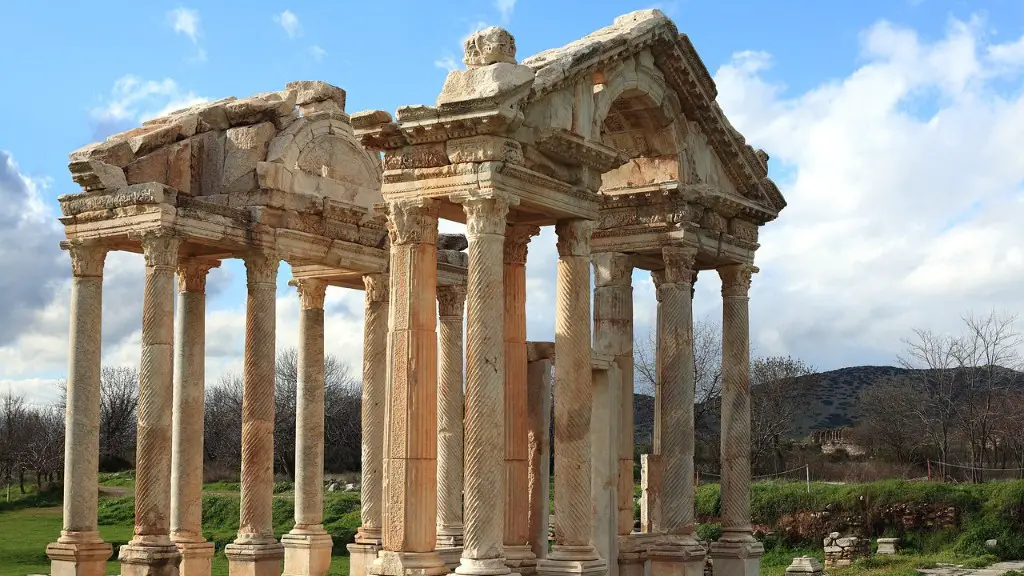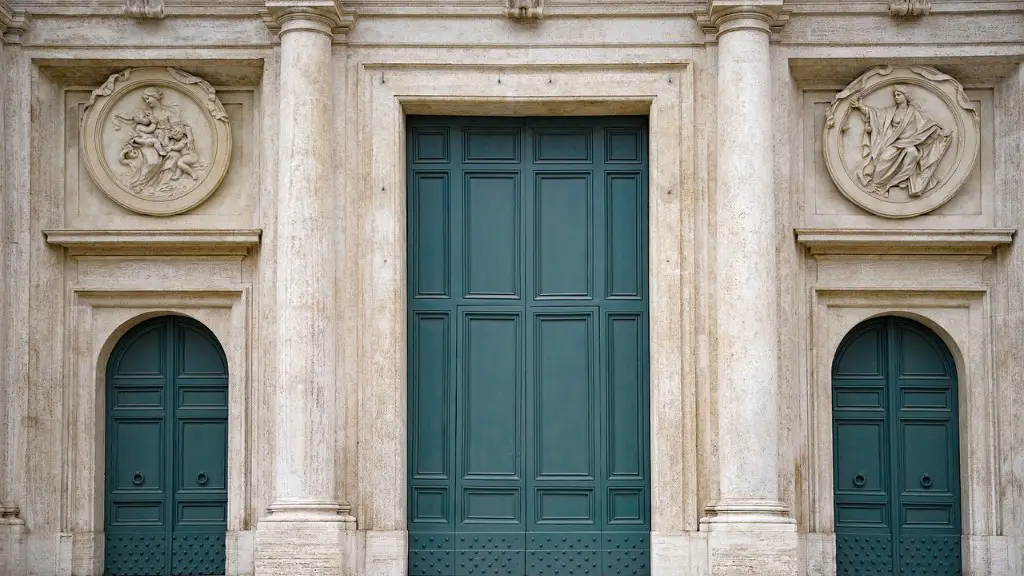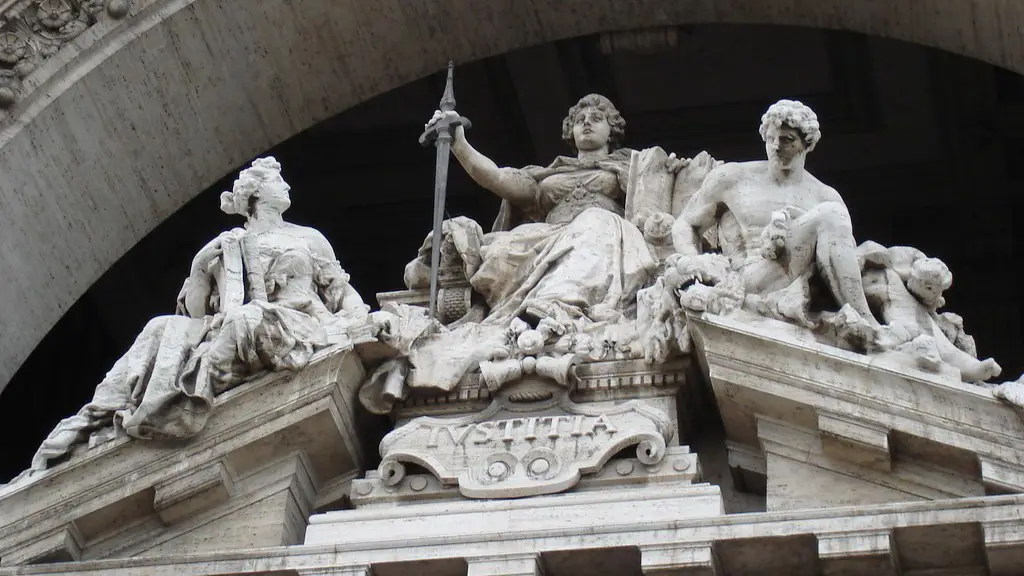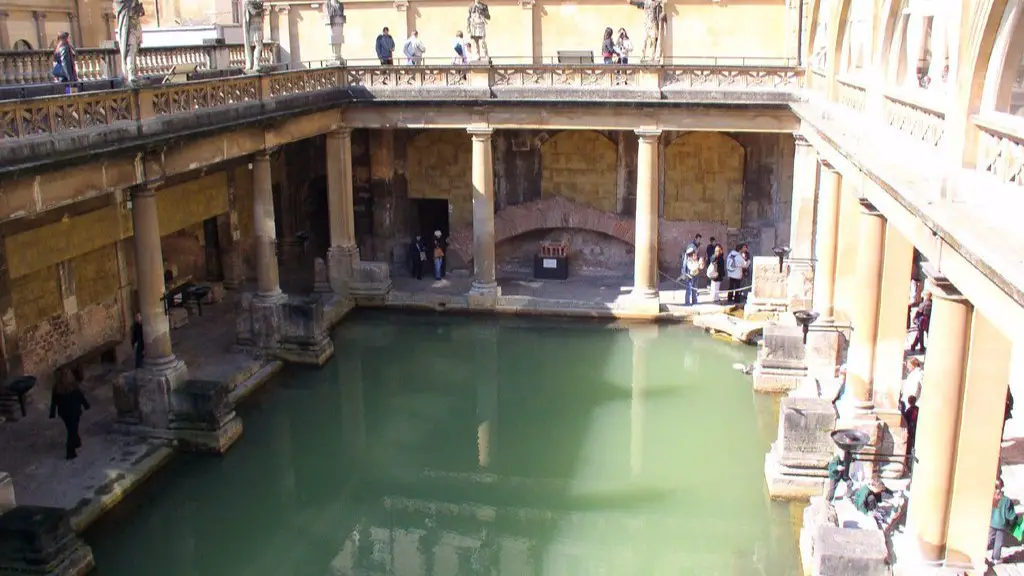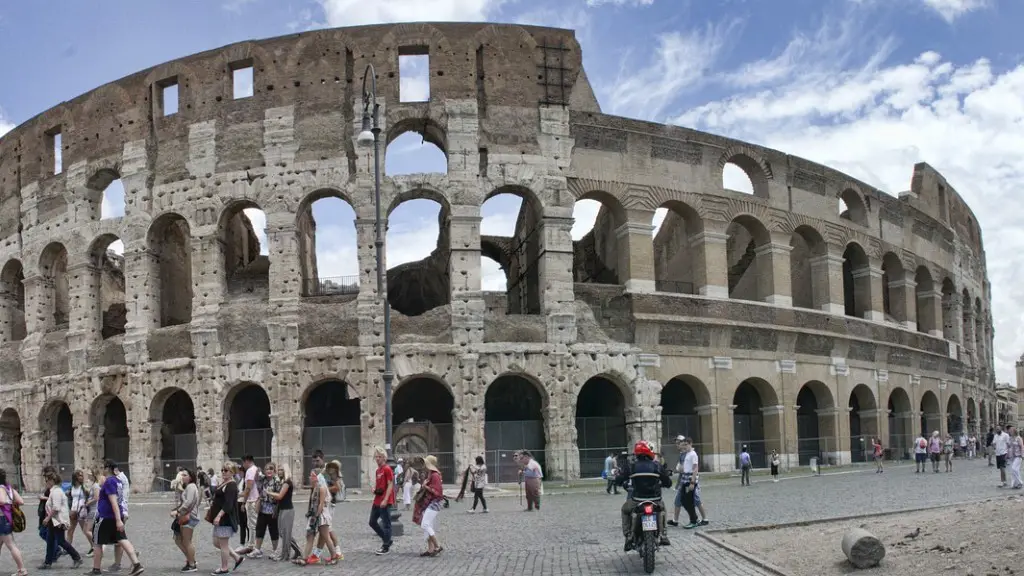The Roman Empire was one of the most powerful empires in the world for centuries. During that time, the empire went through many changes, including its treatment of religion. In the early days of the empire, Rome was very tolerant of different religions. However, as the empire became more powerful, Rome began to see religion as a way to control the people. The government began to regulate religious beliefs and practices. This policy continued until the fall of the empire.
The answer is no, ancient Rome did not separate religion and state.
Was ancient Rome’s religion and government combined?
There were many gods and goddesses worshipped by the people of ancient Rome. The most important were Jupiter, Juno, and Minerva. Jupiter was the god of the sky and the protector of the state. Juno was the goddess of marriage and childbirth. Minerva was the goddess of wisdom and war.
Christianity became the official religion of the Roman Empire when Emperor Theodosius I issued the Edict of Thessalonica in 380, which recognized the catholic orthodoxy of Nicene Christians in the Great Church as the Roman Empire’s state religion. This act made Christianity the dominant religion of the empire and solidified its position as a major world religion.
What was the religion and state in ancient Rome
The Roman Empire was a primarily polytheistic civilization, which meant that people recognized and worshiped multiple gods and goddesses. Despite the presence of monotheistic religions within the empire, such as Judaism and early Christianity, Romans honored multiple deities. The most prominent god in the Roman pantheon was Jupiter, who was considered the king of the gods. Other major gods included Mars, the god of war; Mercury, the god of commerce; and Venus, the goddess of love.
The Roman religion was tolerant of other religions as long as they also honored Roman gods. The Roman religion included many major and minor gods, headed by the sky god Jupiter. In Roman belief, a sort of contract existed between the people and their gods.
How was Roman religion and politics connected?
Religion played a vital role in the Roman political system as it was used to legitimize the ruling class and maintain social order. The influence of religious authorities was evident in many aspects of Roman society, from the way laws were made to the way people interacted with one another. This meant that both the political and social structures of Rome were heavily influenced by religious entities.
The Republics of Greece, Rome, and Carthage were all mixed governments. This means that they had a system of government that included elements of both democracy and aristocracy. For many, Britain provided the ideal system, with a monarch, the aristocratic House of Lords, and the democratic House of Commons.
When did Rome stop being a state?
There are a few different schools of thought on when exactly the Roman Republic came to an end. Modern-day historians often consider the official end to be 27 BC, when Octavian was given the title of Augustus by the Roman senate. However, some historians believe that the Republic actually ended a few years earlier, in 31 BC, when Octavian defeated Mark Antony and Cleopatra at the Battle of Actium. Additionally, there are those who believe that the Republic continued on for a few more years, until Augustus died in 14 AD. No matter which date you consider to be the end of the Republic, it’s clear that it was a turning point in Roman history.
The Roman Empire was divided into two parts in the third century by Emperor Diocletian. The Western Roman Empire was ruled by one emperor and the Eastern by another. This was done to make the Empire more manageable. The tetrarchy was then dissolved in favor of an Eastern and Western Roman Empire.
When did the Romans stop believing in their gods
In ancient Rome, outward religious observance was extremely important. Refusing to honor the traditional gods with sacrifices and rituals could result in persecution by the Romans. This changed in 312 AD when the Roman emperor Constantine became a convert to Christianity.
The Religio Romana was the major religion of the city in ancient times. The first gods held sacred by the Romans were Jupiter, the highest god, and Mars, the god of war and father of Rome’s twin founders, Romulus and Remus. This religion constituted the basis of Rome’s belief system and culture.
When did Christianity become state religion of Rome?
In 313 AD, the Emperor Constantine issued the Edict of Milan, which accepted Christianity. 10 years later, Christianity had become the official religion of the Roman Empire.
The Edict of Thessalonica made Christianity the official religion of the Roman Empire in 380 CE. This edict was issued by the emperor Theodosius. Christianity had been gaining ground in the Roman Empire for some time, and this edict formalized its status as the dominant religion.
Did religion cause the fall of Rome
One of the main factors that led to the fall of the Roman Empire was the rise of Christianity. Christianity is a monotheistic religion, which runs counter to the traditional Roman religion, which is polytheistic. This led to a lot of religious conflict and eventually the Christian religion became the dominant religion of the empire.
Some religions were banned for political reasons rather than dogmatic zeal, and other rites which involved human sacrifice were banned. This was done in order to prevent religious conflict and violence.
How did the Romans feel about religion?
The object of Roman religion was to secure the cooperation, benevolence, and “peace” of the gods (pax deorum). The Romans believed that this divine help would make it possible for them to master the unknown forces around them that inspired awe and anxiety (religio), and thus they would be able to live successfully. In order to achieve this, the Romans practiced a variety of rituals and offerings designed to appease the gods. These included public ceremonies, private prayers, and animal sacrifice.
According to Roman religion, approval from the gods did not depend on a person’s behavior, but on perfectly accurate observance of religious rituals. Each god needed an image – usually a statue or relief in stone or bronze – and an altar or temple at which to offer the prayers and sacrifices.
Final Words
There is no single answer to this question as there was no official policy on religion in ancient Rome. Some historians believe that the Roman state tried to maintain a separation between religion and civil life, while others argue that religion played a significant role in every aspect of Roman society.
It is difficult to say definitively whether or not ancient Rome separated religion and state because there is no clear definition of what that separation would entail. However, it is clear that the Roman state was heavily involved in religious life and that religion was an important part of Roman society. It is possible that the separation of religion and state was not as important to the Romans as it is to modern societies.
